News
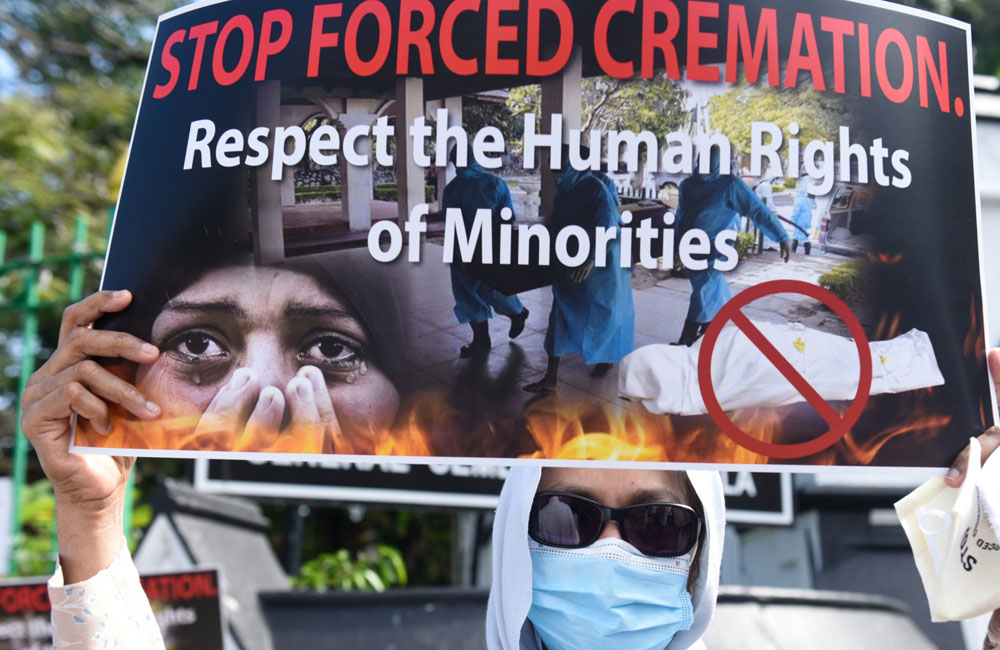
Sri Lanka’s mandatory cremation policy is playing politics with the dead - GTF
"Sri Lanka’s mandatory cremation policy has caused major outrage and trauma for the Muslim and Christian minorities, whose beliefs require dead bodies should be buried. It is the Muslim community that has been disproportionately affected by COVID-19, and to force them to adopt practices that violate their fundamental religious beliefs is cruel and inhumane," the GTF said in a statement.
It has been reported that the abuse of this policy is widespread and several Muslims whose bodies were cremated had not been tested for coronavirus, and even tested negative.
"Another tragic manifestation of this policy is that several Muslim families have even disowned their dead because they did not want to be complicit in the cremation of their bodies which is believed to be a sinful act against their loved ones," the statement pointed out.
They said that there is no scientific justification for the government to adopt this policy and deny the dead the dignity they deserve in death. In fact, the guidelines from the World Health Organization state that the burial of victims posed no danger to public health, and almost all the countries allow for the burial of COVID-19 victims, making Sri Lanka an outlier among the world nations.
"Top government officials changed their original guidelines under pressure from influential Buddhist monks to mandatory cremations. The Supreme Court rejected fundamental rights petitions filed by fourteen affected families without giving reasons for its decision. Faced with mounting domestic and international pressure, the government made an extraordinary attempt to fly bodies to Maldives for burial to placate its extremist support base. All these unquestionably indicate the direction Sri Lanka is heading," they said.
They noted that the mandatory cremation policy is not an exception, but rather one more fitting element within the broader agenda of the Rajapaksa government.
"The deplorable initiatives it has taken within a year, such as enacting the autocratic 20th Amendment to the constitution; appointing Presidential Commissions and task forces to scuttle established governance procedures; militarising top levels of the bureaucracy (including some who are credibly implicated in serious human rights violations), resorting to surveillance, intimidation and detention without charge (a precursor for rampant media self-censorship), and withdrawing from the UNHRC resolution which Sri Lanka pledged for years as its ‘solemn commitment to accountability and reconciliation’ – are indicative of its gradual transition from democratic to an authoritarian regime," the GTF warned.
"Lack of collective initiatives and counter actions now will only make the task much harder in the future. The civil society groups and all fair-minded people should seize the moment in the name of humanity, brotherhood and fundamental rights," the GTF added.
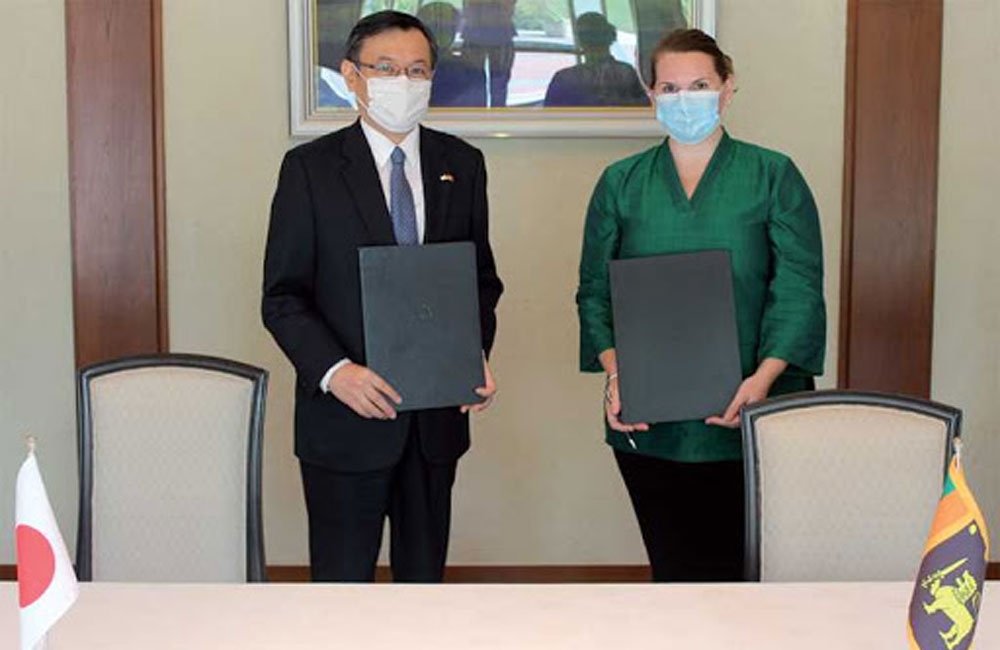
Japan grants LKR 115 million for humanitarian demining activities
The Government of Japan has provided a total sum of USD 636,262 (approx. LKR 115 million) to the Mines Advisory Group (MAG) for humanitarian demining activities in Northern Sri Lanka, the Japanese Embassy in Colombo said.
The grant contract was signed on the 23rd December 2020 at the Ambassador’s Residence in Colombo, between Sugiyama Akira, Ambassador of Japan and Emilie Mbaye, Interim Country Director of MAG. The project will contribute to the efforts of the Government of Sri Lanka in ensuring that mine-contaminated areas are safe, enabling the resettlement of displaced people and enhancing directly or indirectly more than 8,000 people’s livelihoods in the Mannar and Vavuniya Districts.
MAG commenced operations in Sri Lanka in 2002 with approximately 20% of its clearance activities accomplished through Japanese assistance. Since 2009 when precise data was made available, MAG has released the total of 93km2 of suspected contaminated land in the country.
Japan has been a major donor in the area of mine clearance in Sri Lanka since 2002 and is the only donor in the country which assists all four demining NGOs currently operating in the island. More than USD 38.2 million worth of assistance was rendered towards this cause through the Grant Assistance for Grassroots Human Security Project (GGP).
The Government of Sri Lanka aims to achieve “a mine impact free Sri Lanka” within a few years and to become the next mine impact free country in the world. Through this project the Government of Japan endeavors to ensure that Sri Lanka is safe for all.
Commenting on the provision of this grant, Ms. Emilie Mbaye stated;
“MAG is honored to accept this grant from the Government of Japan, an esteemed donor for Humanitarian Mine Action projects both within Sri Lanka and around the world. In the last six years alone, the partnership between MAG Sri Lanka and the Government of Japan has enabled the removal and destruction of over 13,000 landmines. It has helped many people resettle and rebuild their lives and livelihoods in Mannar, Mullaitivu and Vavuniya districts through its clearance operations.
The funding from the People of Japan will not only contribute to saving lives but also building safer futures for the mine-affected and poorest communities in the country. With this continued Japanese support, MAG is looking forward to continuing clearance activities during the final stage of landmine release in the country in support of the Government of Sri Lanka’s commitment to being mine impact free.”
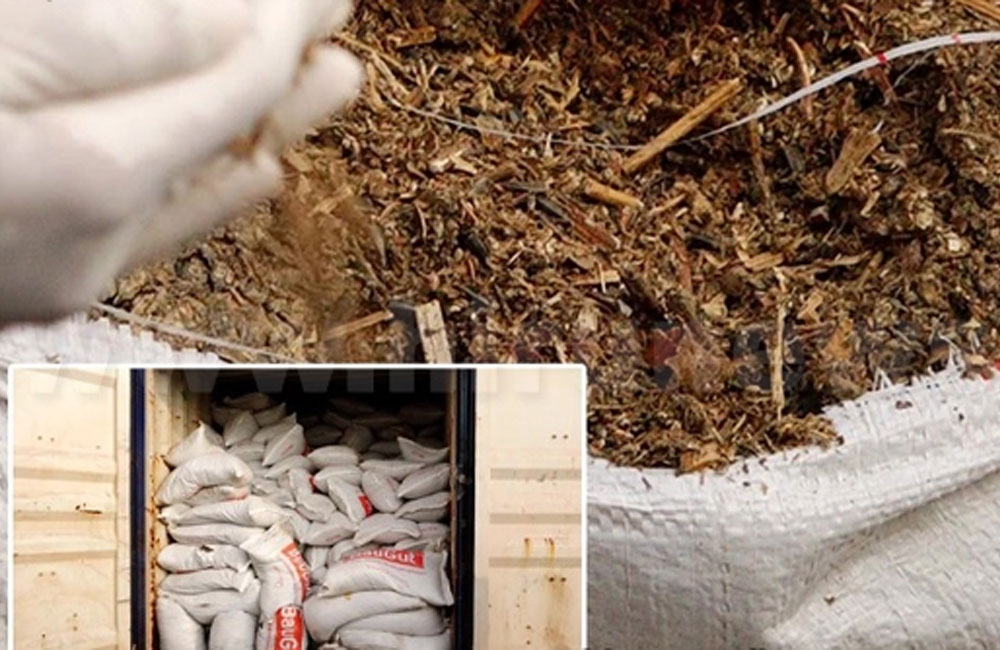
Customs to launch scientific probe into agri plant waste imports
“Further investigations with regard to the 28 freight containers of Agricultural Plant Waste from Ukraine, are still ongoing,” Customs Spokesperson, Sunil Jayaratne revealed.
The consignment was sent from AGRONIKA TRADE in Ukraine, in the guise of Coriander seeds.
“The investigation will specifically focus on an intermediary individual involved in the importation process, as all the eight importers connected to the incident have claimed they are victims of fraud and were deceived,” Sunil Jayaratne, the Customs Spokesperson further noted.
Meanwhile, according to Dr. Anil Jasinghe, the Secretary to the Ministry of Environment, it is possible to inform the Ukrainian Environmental Authority about the relevant containers since the consignment contained waste.
“A complaint will be lodged with the Basel Convention Secretariat located in Geneva as well,” Dr. Jasinghe further said.
According to the Basel Convention, the export of agricultural waste from one country to another is strictly prohibited and Sri Lanka is also a signatory to the Convention.
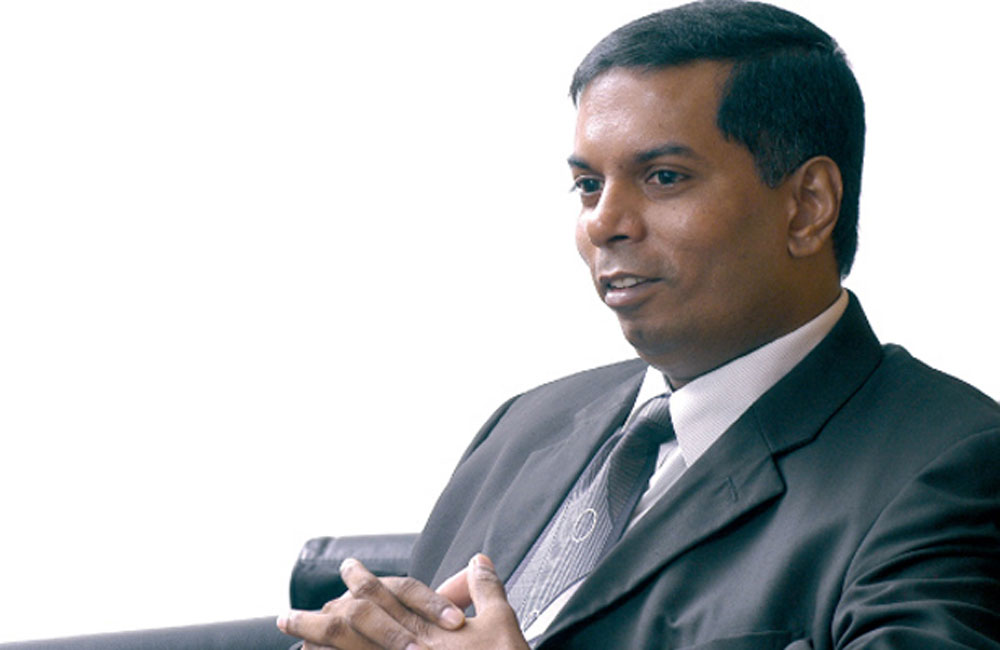
Lanka Sathosa Chairman removed
Minister of Trade Bandula Gunawardena has taken action to remove the chairman of Lanka Sathosa, Nushad Perera, with immediate effect under instructions from President Gotabaya Rajapaksa. The Chairman was alleged to have caused substantial losses to the government through a sugar racket by joining forces with a notorious company.
It is reported that Bhadrani Jayawardena, the Secretary to the Ministry of Trade, has been appointed as the acting Chairman of Lanka Sathosa.
Sources say that Nushad Perera has been informed to resign immediately from the post by the Ministry of Trade.
The notorious company as well as Nushad Perera have been engaging in this racket without any hindrances by abusing the President's name to intimidate top officials at the Ministry of Trade.
Minister Bandula Gunawardena had recently met with the President and expressed his grave concerns regarding this matter.
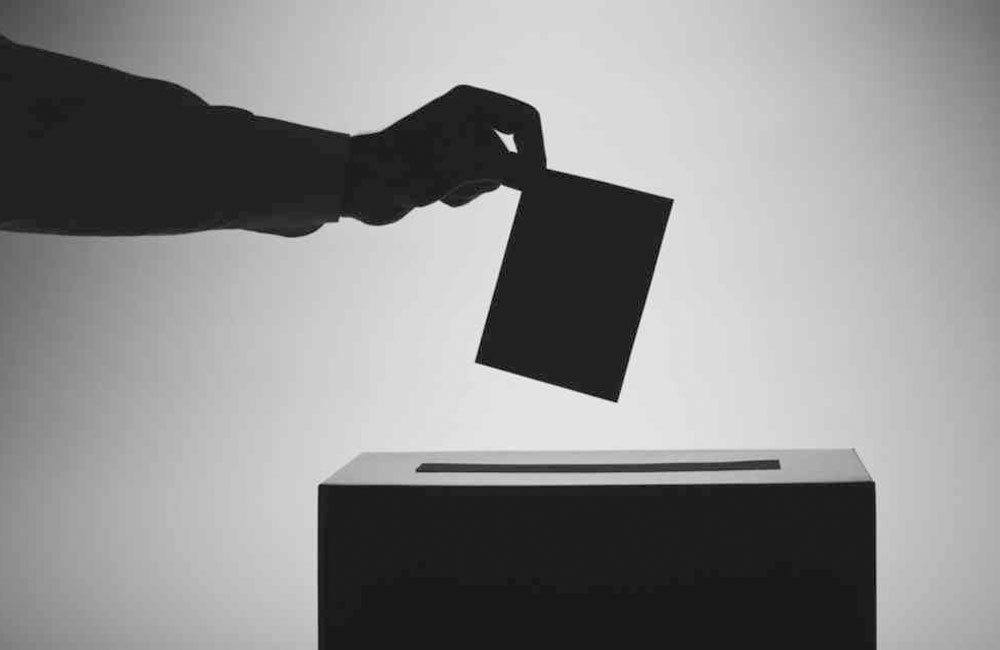
Election Commission prepares to conduct Provincial Council election
Newly-appointed Elections Commission (EC) Chairman Nimal Punchihewa said the government would have to spend approximately LKR 4.5 billion to hold the Provincial Council (PC) election.
He said the Commission could proceed with the election once the required laws are passed in the legislature.
However, Prime Minister Mahinda Rajapaksa, during a meeting with the new members of the Elections Commission, asked them to take necessary measures to hold the PC election soon.
The PC election has been delayed due to issues pertaining to the delimitation process related to the new electoral system passed under the previous government. However, the Chairman said the EC could hold the election under the old system, if the necessary laws are passed by Parliament.
The massive costs that would have to be incurred to conduct the PC election have become a cause for concern for many. Cash strapped government has sought LKR 10 billion from international donors to purchase COVID-19 vaccines for the population.
“The Local Government election is scheduled in 2022. This election will also cost nearly LKR 3.6 billion. The total cost can be reduced if the PC and LG elections are held on the same day. But, the EC cannot make a decision in that regard. It is up to the lawmakers to make a final decision on this matter,” Punchihewa said.
Meanwhile, a section of the government is pushing for the abolition of the PC system saying it does not serve any purpose.
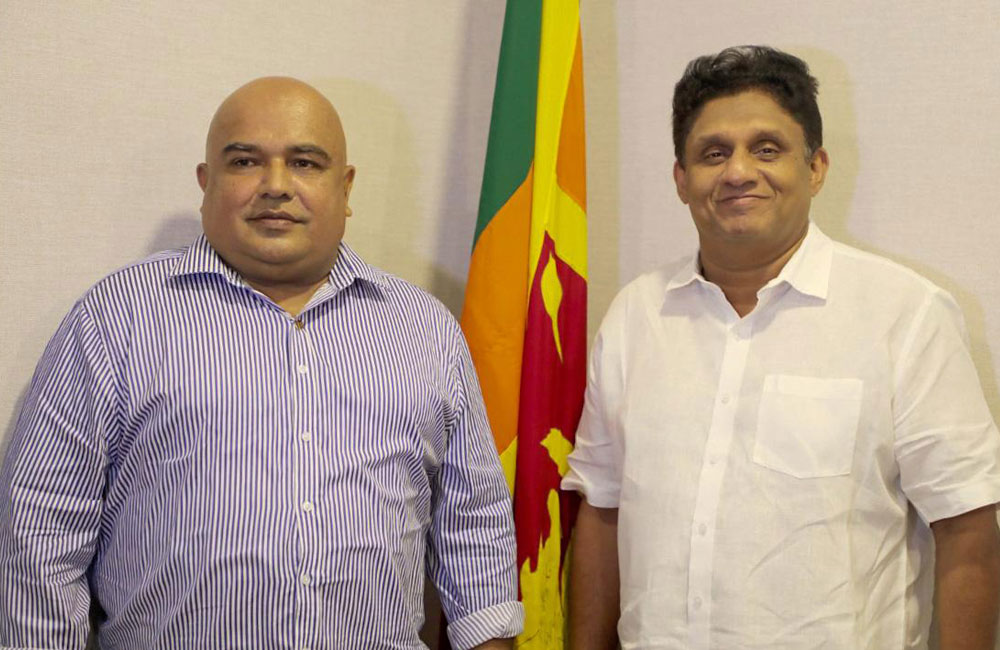
Dr. Rohan Pallewatta joins Sajith's SJB
Following discussions with Opposition Leader Sajith Premadasa, former Presidential candidate Dr. Rohan Pallewatta has decided to extend his support to the Samagi Jana Balawegaya (SJB). Pallewatte contested the last presidential election under the Socialist Democratic Party of Sri Lanka.
He is presently the Executive Chairman of Lanka Harness (Pvt) Ltd., which manufactures impact sensors for automobile airbags and seat belts.
Pallewatte will serve as a member of the party's foreign policy and trade committees and is likely to be given a position in the SJB Working Committee.
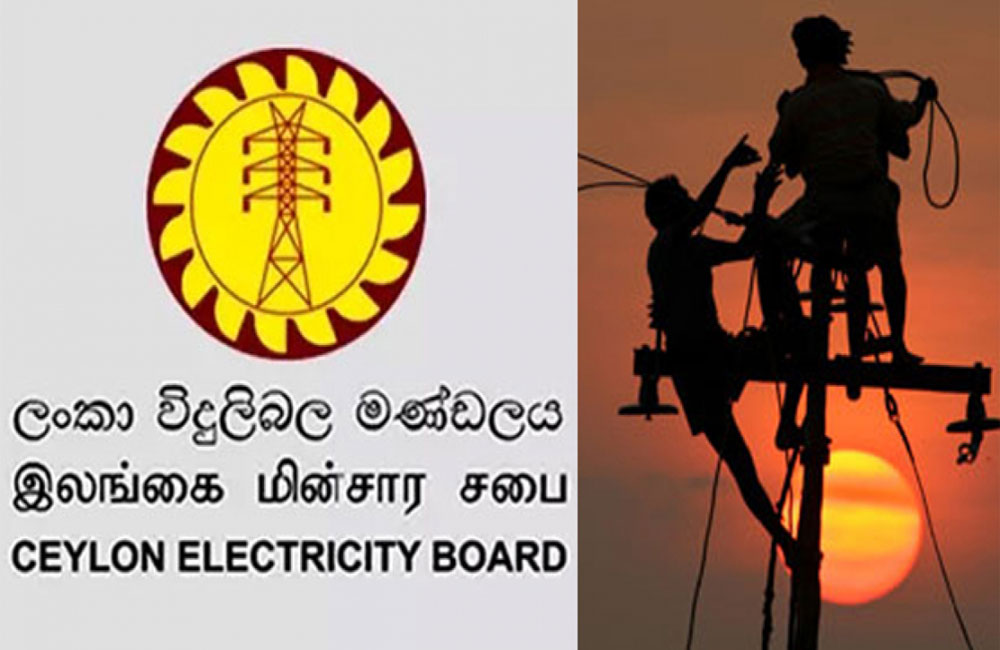
CEB consumer electricity fund in danger of being mismanaged
Leading members of several trade unions alleged that the government is making arrangements to re-constitute the board of the PUCSL paving way for stripping of its consumer protection powers.
There was a possibility that over LKR 25 billion in consumer deposits with the CEB would not be refunded due to the PUCSL restructuring, Secretary of the Union of Electricity Consumers (UEC) Sanjeewa Dhammika said.
When a person obtained an electricity connection from the CEB, he or she had to place a deposit at the regional CEB Engineer’s office.
In accordance with Sri Lanka Electricity Act, No. 20 of 2009, the CEB has to pay consumers an interest on those deposits, Dhammika said.
Section 28.3 of the Act says "(3): Where any sum of money is provided to a distribution licensee by way of security in pursuance of this section, the licensee (CEB) shall pay interest on such sum of money at such rate."
This interest may from time to time be fixed by the licensee with the approval of the Commission (PUCSL), for the period in which it remains in the hands of the licensee.’
Dhammika said: “None of the governments has paid this interest although the PUCSL annually declares the interest rate that has to be paid.
Now, there is about LKR 25 billion of electricity consumers’ money with the CEB.
"Since the PUCSL is to be dissolved, who is there to keep an eye on this money?" he asked.
Dhammika said that with LKR 25 billion, the government could construct a 100 megawatt power plant. The CEB should not be allowed to swindle the LKR 25 billion that belonged to the electricity consumers, he insisted.
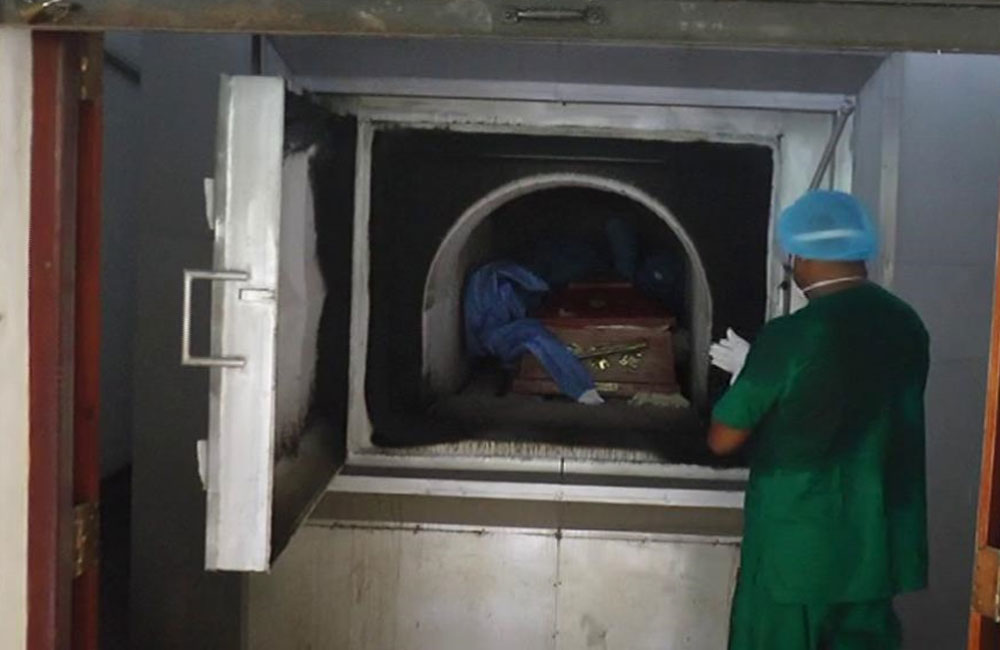
Enforced cremation of 20-day-old infant: Parents file FR before the Supreme Court
The petitioners stated that authorities at the Lady Ridgeway Hospital had cremated the body of the infant against their wishes in an undue hurry. They said that the child was in good health after his birth on 18 November and had no contact with any outside persons as the area they lived in was under lockdown. They also said that although they had requested the hospital to perform a second PCR test after the death of the infant, the authorities had denied their request.
The petitioners are seeking an order directing the health authorities to produce all medical records pertaining to the hospitalization, death and disposal of the dead body of the infant child of the Petitioners.
The petitioners (parents) Mohomed Farook Mohomed Fahim and Fathina Shafnaz have named the Director General of Health Services, the Director of the Lady Ridgeway Hospital for Children, the Minister of Health, Nutrition and Indigenous Medicine, Ministry Secretary and several others as respondents.

I resigned as CWE chairman - Nushad clarifies
In a statement, he stated that he is still the Chairman of ‘Lanka Sathosa’, the state-owned supermarket chain.

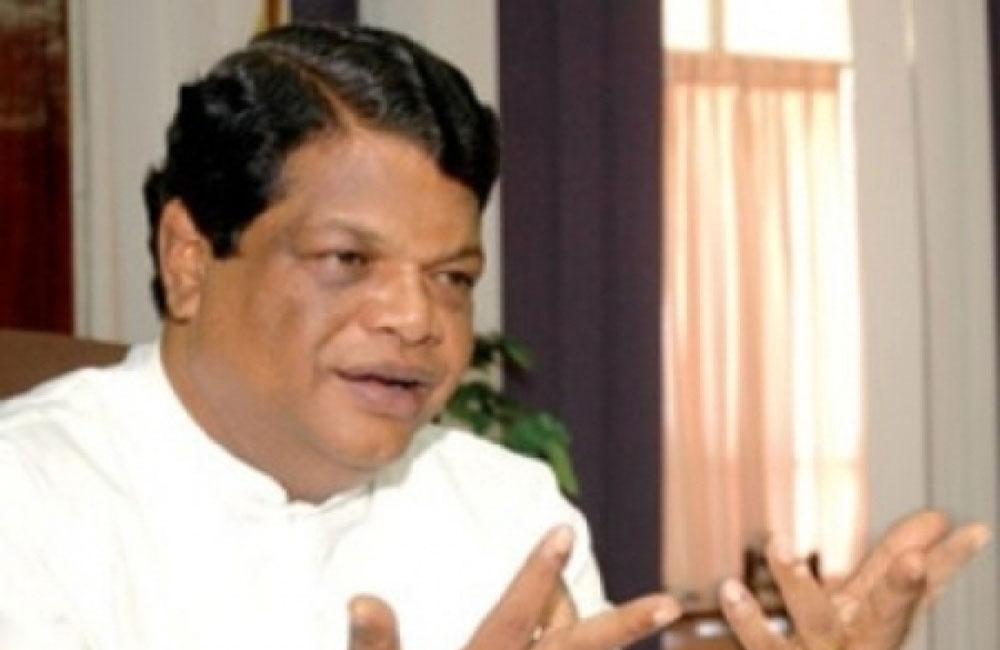 Reports surrounding the removal of Nushad Perera surfaced after allegations of malpractice were raised against him by Janatha Vimukthi Peramuna Leader MP Anura Kumara Dissanayake in Parliament recently.
Reports surrounding the removal of Nushad Perera surfaced after allegations of malpractice were raised against him by Janatha Vimukthi Peramuna Leader MP Anura Kumara Dissanayake in Parliament recently.However, internal government sources had earlier stated that Trade Minister Bandula Gunawardena had informed Nushad Perera to resign from his post according to the instructions of the President.
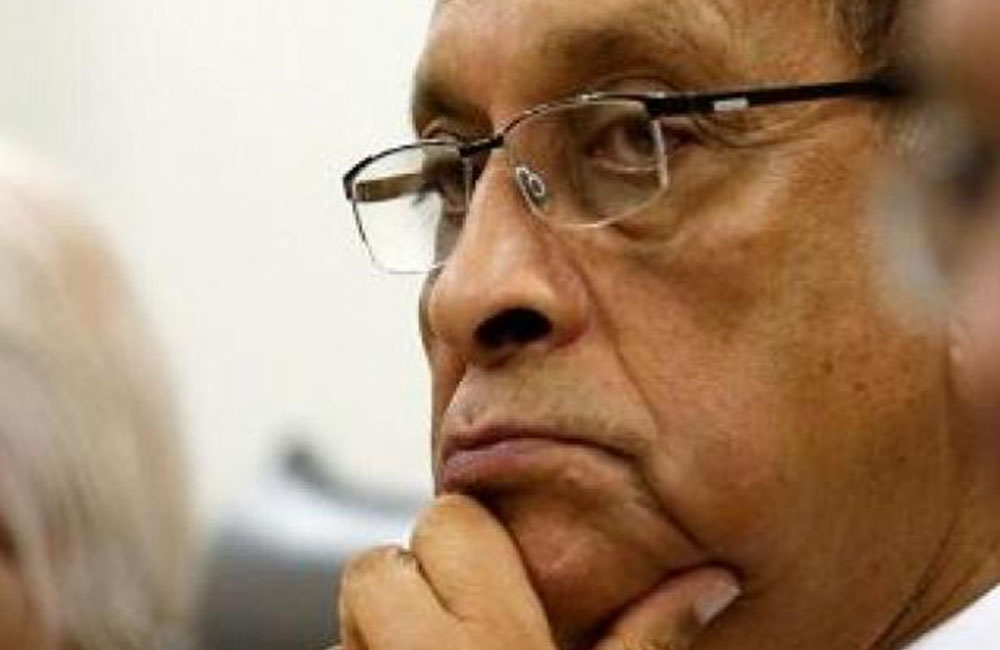
Every Sri Lankan must have the right to be buried in his homeland - Former Speaker Karu Jayasuriya

New taxes on imported readymade garments by April
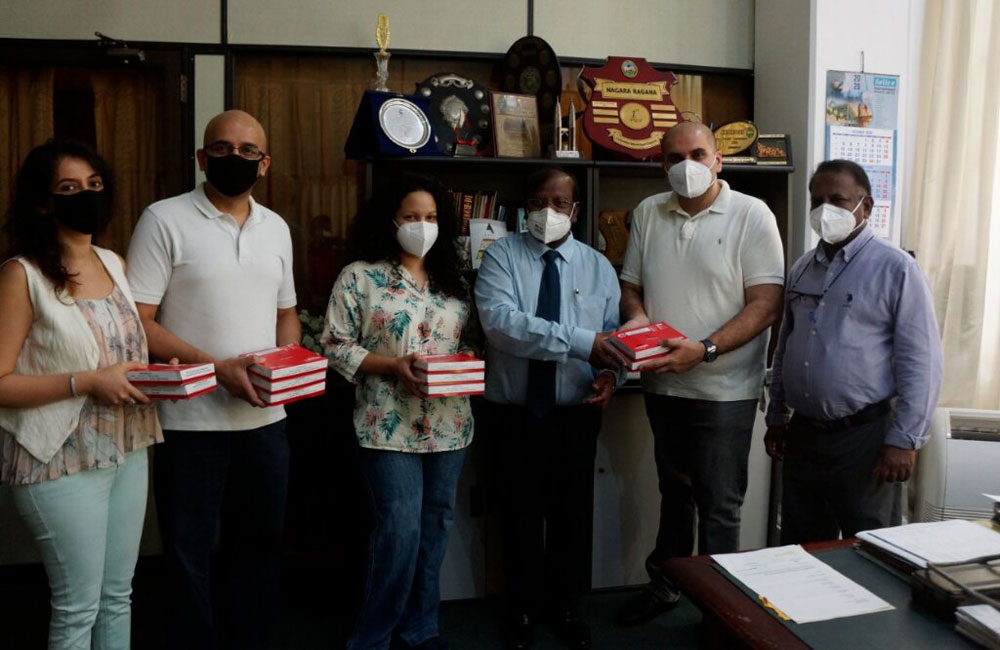
Food drive launched by the Sri Lanka chapter of the Entrepreneurs' Organisation
Members of EO SL and their families have been reaching out to the vulnerable and marginalized segments of society by donating food and distributing essential supplies, especially in areas which have been isolated.
EO SL Members have been dedicatedly documenting their interactions on social media to provide inspiration to more people to come forward and do the same.
The EO membership is led by a vision to have a positive impact on deserving sections of society which currently do not have the financial means to survive on their own, the organisation said in a media release.
At such an uncertain time, apart from this food drive, EO SL is also extending support and guidance of other successful entrepreneurs for its members to relook at their own strategies and goals despite challenges posed by the pandemic.
Since EO is a non-profit, all dues are channeled towards enhancing member experience. EO SL is now inviting more entrepreneurs to join the network, more so amidst a global pandemic when normal rules of business may not always apply.
Sri Lankan entrepreneurs who are not part of EO are missing out on valuable business-saving knowledge and advice from a trusted, confidential, vulnerable, open-sharing community of 14000+ members across 62 countries.
EO offers unique advantages to members such as gaining access to the world’s top experts and surmounting challenges through their encouragement and support.
Page 383 of 660